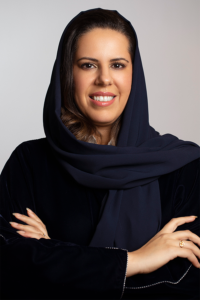
In the ever-evolving landscape of education, the intersection of Artificial Intelligence (AI) and learning methodologies presents both unprecedented opportunities and ethical challenges. A remarkable perspective on this integration comes from Dr. Husa Alangari, an Assistant Professor of Instructional Design & Technology at Princess Nourah bint Abdulrahman University in Saudi Arabia.
With over two decades of experience in education, including pivotal roles at the Ministry of Education and as a part time consultant at the National eLearning Center, Dr. Alangari’s insights, presented at the World Innovation Summit for Education (WISE 11), offer enlightening perspectives for the education sector, which is currently undergoing digitalization and significant transformations due to emerging technologies.
At Princess Nourah University, Dr. Alangari’s role extends beyond traditional academic responsibilities. She is at the forefront of exploring and implementing AI-driven technologies in education, with a keen focus on maintaining the critical human connection in the learning process. Her early ventures include pioneering the first computer-assisted language learning program in Saudi public schools and a dissertation that emphasized digital technology in elementary education, ‘Parents as Stakeholders in the Use of Digital Technology in Elementary Classrooms’.

The post-Covid era has intensified Dr. Alangari’s focus on utilizing AI in education, especially considering the mental health concerns that have emerged. Her approach is not just about integrating AI into the curriculum but doing so in a manner that enhances learning while preserving human interaction. In her practice, Dr. Alangari has utilized ChatGPT to engage students, guiding them to use higher-order thinking skills, not just to interact with AI but to critically evaluate its responses and outputs. This practice underscores the philosophy that while AI is a valuable educational tool, it cannot replace the critical thinking and judgment skills imparted by human educators.
“My vision is to ethically integrate AI to safeguard the learning process and protect learners, equipping them with skills and knowledge for optimal use in the workplace. This preparation is crucial for the evolving job market influenced by AI.” –
Dr. Husa Alangari
The integration of AI into the curriculum at Princess Nourah bint Abdulrahman University is cautious and deliberate. With a restructuring underway, the focus is on developing ethical guidelines and standards for AI use. Dr. Alangari emphasizes the importance of faculty members, particularly those not specialized in instructional design and technology, being adept at incorporating AI tools into teaching methodologies. She highlights creative and critical engagement with AI, steering clear of its unethical misuse, such as plagiarism.
A significant aspect of Dr. Alangari’s work is promoting the involvement of women in AI and technology fields, in line with Saudi Arabia’s Vision 2030 for gender equality. The Women’s Leadership Center at the university plays a critical role in empowering women to take up leadership roles, including in AI and technology sectors. The knowledge of AI and its capabilities is becoming increasingly essential in the workplace, and Dr. Alangari’s efforts aim to prepare women for these evolving demands.
Dr. Alangari’s message at WISE 11 revolved around the impact of AI on higher education, focusing on building resilient pedagogies and exploring both the challenges and future of AI in this sector. Her vision for AI in education at Princess Nourah bint Abdulrahman University and the broader educational landscape is to ethically integrate AI, safeguarding the learning process and equipping learners with the necessary skills for the AI-influenced job market, while maintaining the essential human connection in education.
Dr. Alangari’s work and vision represent a pivotal movement in education, where the integration of AI is conducted with a balanced view, ensuring that while technology advances, the human aspect of learning remains irreplaceable and central to the educational experience![]()









